What You Should Know About Traveling With Kids
- viarv service
.jpg/v1/fill/w_320,h_320/file.jpg)
- Apr 19, 2019
- 6 min read
Updated: Apr 22, 2019
Do you read through RV blogs and websites, dreaming about traveling when your kids leave the house? I’ve got news for you—camping in an RV is something you and your kids can do right now.
The RV lifestyle scares away most families with the idea of being cramped into a small space with impatient children or moody teenagers. Still, those brave enough to try it out often discover what other families have been missing. It’s true, traveling with kids can be hectic…or it can be the chance you need to connect as a family.
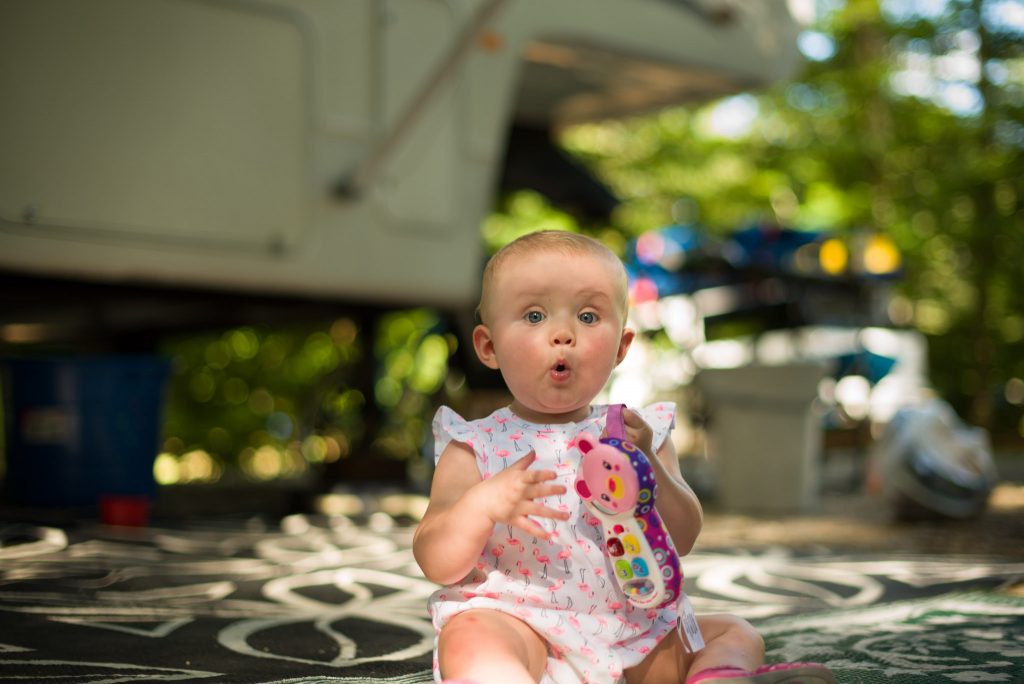
Choosing a location
When choosing a location to camp with your family, keep in mind the types of activities your kids are wanting to do. Are they aspiring athletes? Nature fanatics? Do they like to swim or ride bikes? Be sure to choose a campsite with plenty to do. Some of the most kid-friendly campsites are the Yogi Bear’s Jellystone Park Camp-Resorts, a campground franchise with 85 locations scattered throughout the U.S. and Canada.
Many of these parks offer waterslides, swimming pools, and bounce houses, not to mention character appearances from Yogi and Boo Boo. Some U.S. National Park campgrounds offer Junior Ranger programs, which may appeal to younger children.
Always be aware of how family-friendly your chosen campsite is. While kids are welcome in some parks, others may find them disruptive. Some RV parks even charge a fee for each child. If you are nervous about disturbing your neighbors, boondocking may be a good option for you. Park on legal dispersed camping grounds, where your kids can run around with plenty of space.
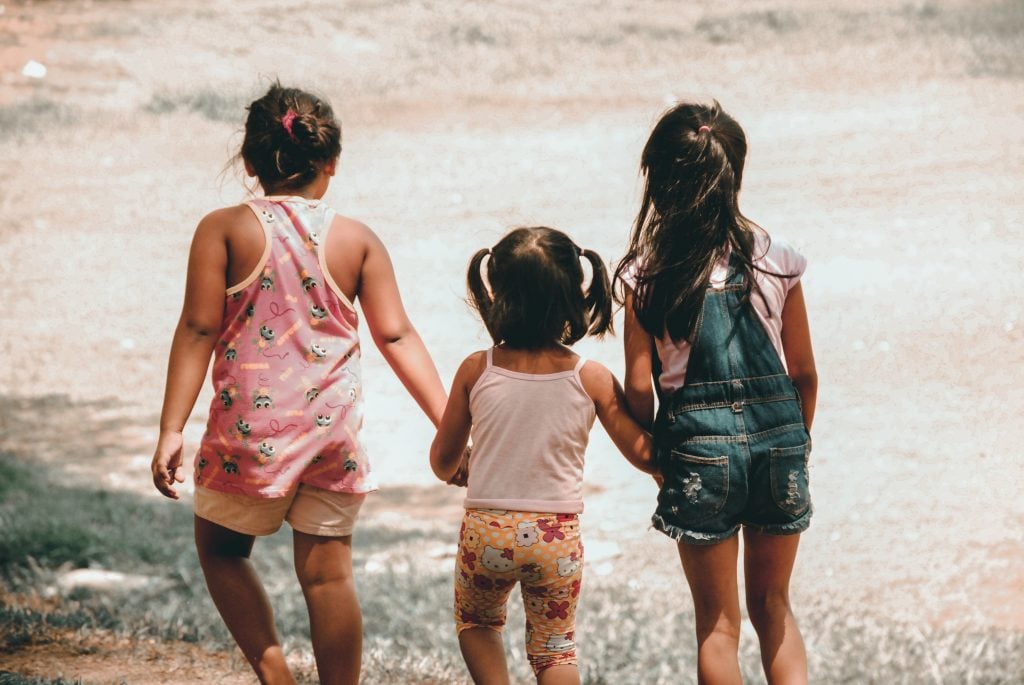
Safety with kids
When driving with kids, safety is the number one priority. Always make sure that everyone is wearing a seatbelt, even when riding in the RV. In some states, seatbelts in RVs are not legally required, but they should always be worn regardless.
Make sure you choose the right size RV for your family. Class C vehicles are safer, but for a family of 6 or more, a Class A RV might be the only option. If little ones need to sleep in overhead bunks, consider bringing along a bedrail. Always keep printed versions of your kids’ medical records with you in case of an emergency.
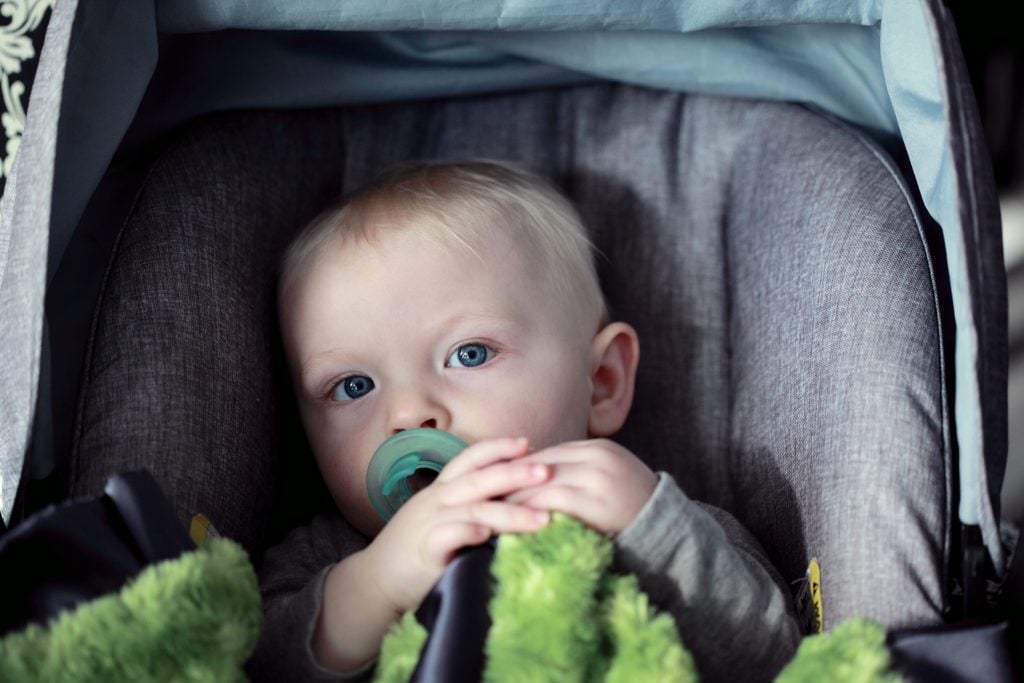
Keeping kids happy on the road
That said, your kids can be safe while still having fun. Rather than letting children roam around the RV while it is in motion, take breaks to get out and stretch at least every 4 hours.
Try not to do a 10-hour drive all in one day. Instead, break up the trip into one-night stops at campsites where kids can swim and play. If you have infants or toddlers, schedule your driving during nap times. Trust me, you’ll be thankful for the lack of screaming.
Although it’s okay to let your kids watch movies in the car, there are quite a few other methods of entertainment that you might want to try first. Try to involve your children in the travel process as much as possible. Pick up some of those old-fashioned paper maps from AAA and show them how to plot out the trip.
Practice reading signs and billboards along the way, and do your best to answer their questions thoughtfully. Play games like car bingo or make a list of all the states you see on license plates. Listen to music as a family and sing along. Car rides don’t have to be a time to tune everyone out.
If you need quiet time, bring travel trays, paper, and crayons for your little artists. It can also be helpful to put together a “goodie bag” and reward good behavior with a new activity each leg of the trip (think play-doh, puzzle books, or magnet dolls). The kids will have fun, and you’ll get some peace and quiet.
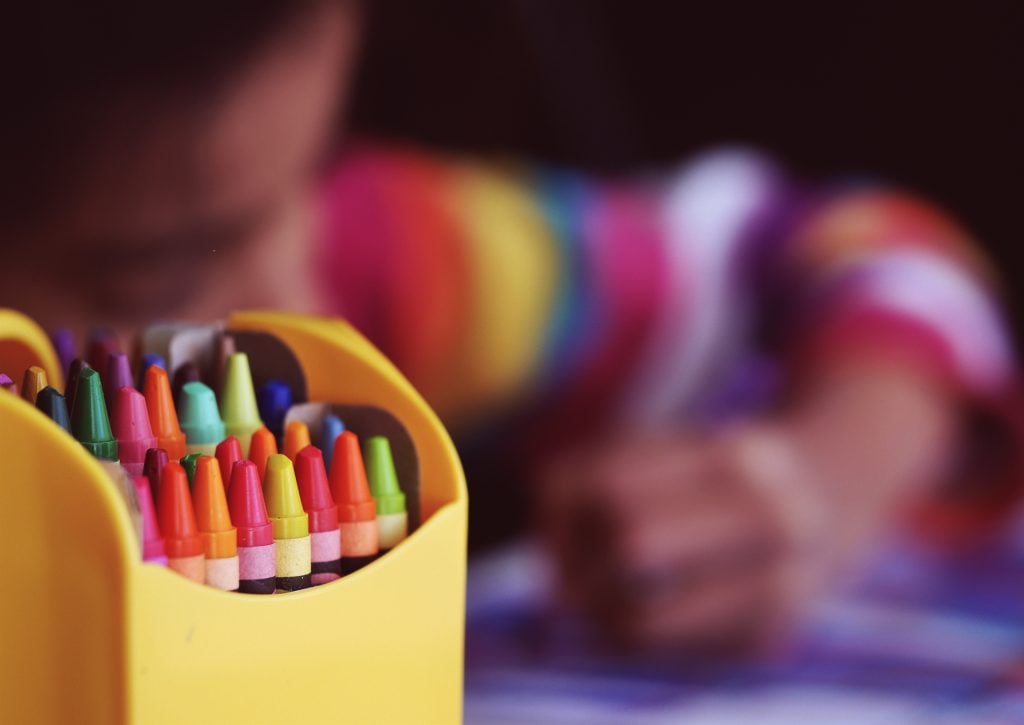
Unplugging from technology
No one wants to go on a family vacation just to sit on their phones all day. Camping trips are about being together without electronic distractions, but if you have teenagers, this can be hard to achieve.
When choosing where to stay, consider a campsite that doesn’t offer WiFi. Better yet, leave electronics at home and plan alternate activities. Even older kids (when coaxed into participating) will enjoy s’mores, campfire sing-alongs, and board games.
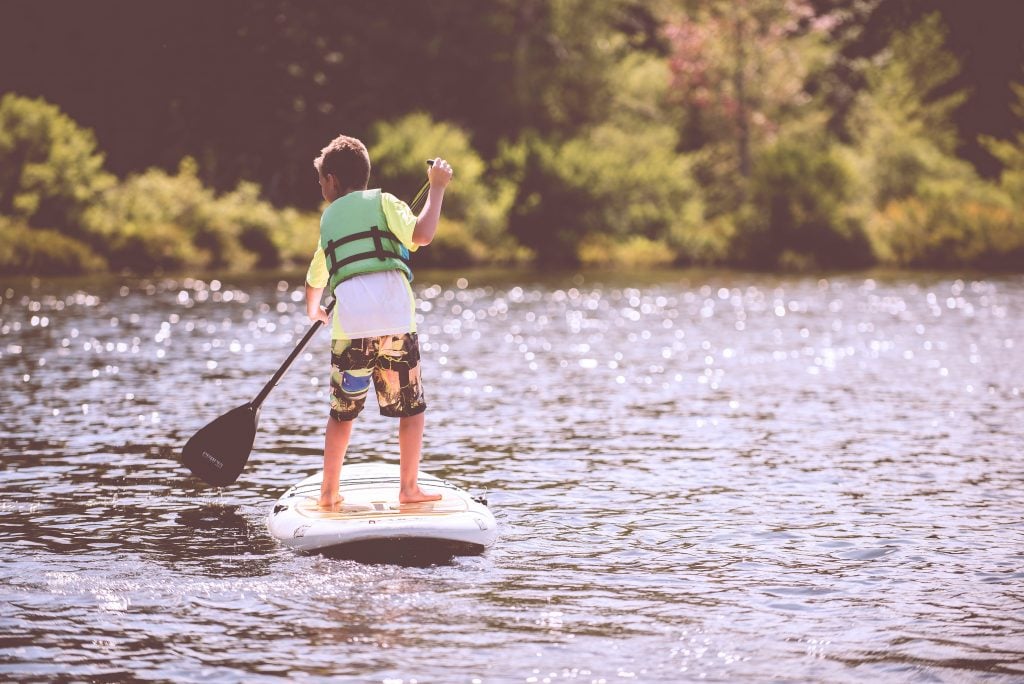
Family activities
No matter how old your kids are, make an effort to spend time with them while camping. Read books about the region in which you’re staying and learn about local wildlife. Bring along outdoor games like croquet or cornhole, and if you have time, make a personalized scavenger hunt to complete together.
If you’re near a lake, take your kids fishing or kayaking. Many National Parks offer family-friendly hikes or geocaching (hunting for small treasures based on GPS coordinates). The Santa Monica Mountains National Recreation Area now offers a refined form of geocaching called ParkCaching.
On rainy days, take the opportunity to teach your kids a new game, like chess or cards. Spend time as a family and make your next trip one you won’t forget.
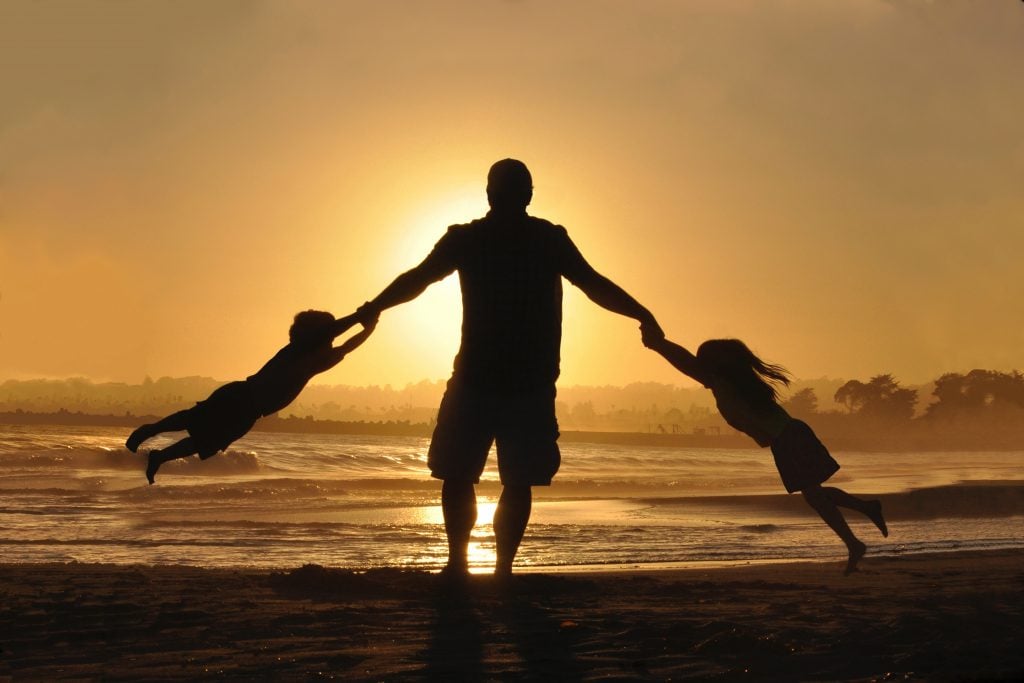
Learning on the road
Kids often learn the most by experiencing things for themselves, so why not take advantage of some fun ways to learn during your family trip? If you choose to camp near a city, visit a zoo or museum.
Point out plants and animals while hiking, and don’t forget to let your kids roam a bit. Encourage kids of all ages to keep travel journals or scrapbooks to document their observations. Let them draw or glue in pictures of the trip. For younger children, this is a great opportunity to practice writing, though you may have to help them spell some words.
Full-time RVers with school-age kids may want to look into roadschooling. Like homeschooling, it allows you to develop lessons for your kids, but with the added bonus of incorporating real-world activities and once-in-a-lifetime experiences. Traveling is the perfect opportunity to teach your kids how to be life-long learners.

Keeping it clean
When you’re living in a 400 sq. ft. motorhome, your space is bound to get messy; bringing kids along increases the chance by about a million percent. If you don’t want to lose your children under heaps of toys and blankets, it’s important to stay organized.
It can be helpful to give each child his or her own plastic shoebox to fill with whatever toys, papers, pencils, and stuffed animals they wish to bring along. This sets a limit on the number of toys they are allowed. Another way to free up space is to set up a separate “play tent” outside the RV, where you can stuff all toys, games, and books whenever they’re not being played with.
You also want to make sure that you’re not bringing too much of the outdoors in. Before letting your children inside, make sure all shoes are removed and sandy feet are rinsed. A doormat and a small broom are essential for the prevention of a dirty RV. You may want to invest a sack for dirty laundry and a cheap plastic tray for toys or dishes.
Be sure to involve your kids in campsite cleanups; believe it or not, many children enjoy being new given responsibilities. You can even make chore time into a game—try playing “Simon Says” with clearing the table or have competitions to see who can gather the most firewood.
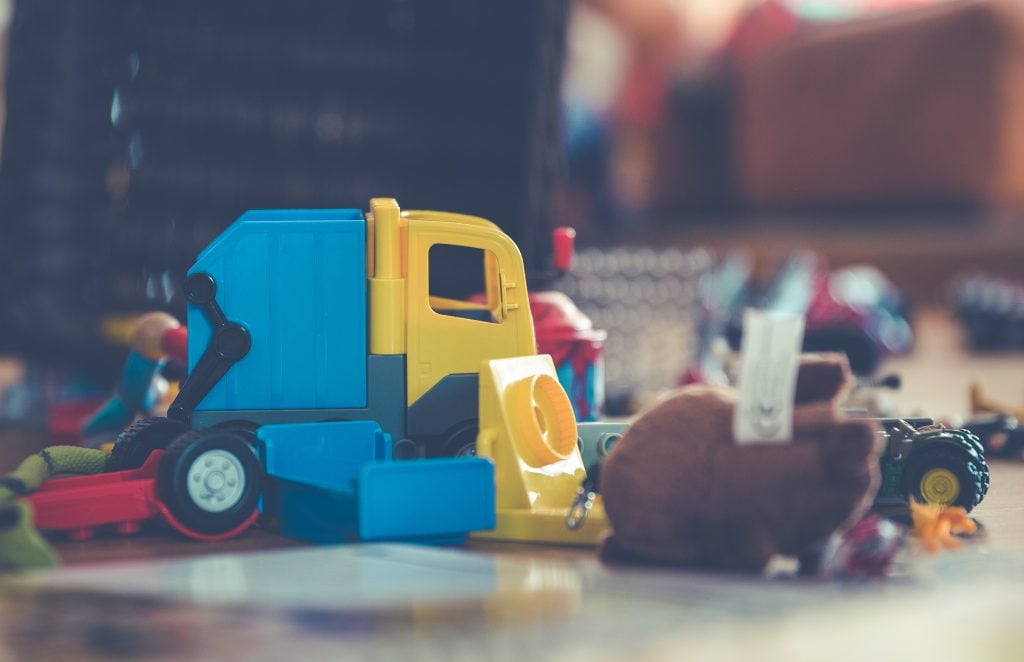
Nighttime activities
One of the best parts of a camping trip comes after dark. No trip is complete without a blazing campfire. Use this time to circle up and hold a family sing along with silly camp songs or have a marshmallow-toasting contest.
Kids will love roasting hot dogs on a stick. You can also set aside a special snack to have only during RV trips—your kids will learn to associate this food tradition with family camping and have something to look forward to each time. When putting little ones to bed, maintain the same nighttime routine that you follow at home. Bring along your child’s blanket or pacifier and try to put them to bed around the usual time.
Even after the campfire dies down, nighttime can be a fun time to play with your kids. Reduce stress by buying glow stick bracelets or necklaces; the kids will love it, and you’ll be able to see them.
Lay down and gaze at the stars. There are many astronomy apps that can help you identify constellations. Play glow-in-the-dark bowling with your kids by placing glow sticks inside water bottles and setting them up like pins. You may want to watch a movie together under the stars or catch fireflies in a jar. Camping with your kids is the time to relive your childhood, so have fun.
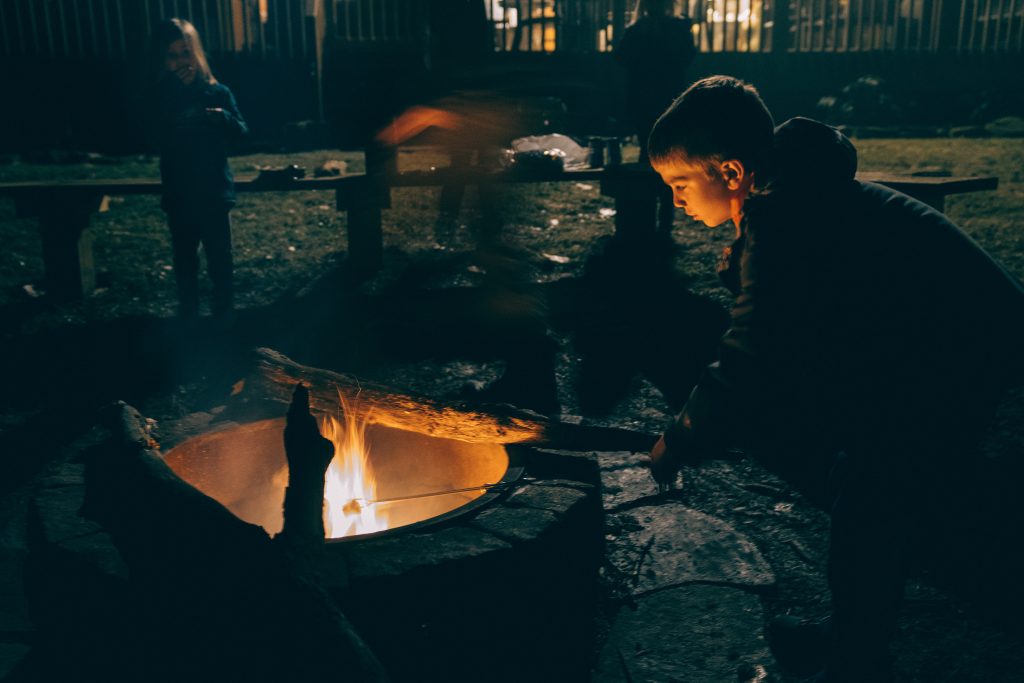
When bringing along the whole family for an RV vacation, be flexible. Things might not go exactly how you want them to, but that’s okay. Remember—every predicament you get yourselves into, though it may seem like a stressful problem at the time, will become a great story to tell when you get back home.
This information is for educational purposes. VIARV shall not be responsible nor retain liability for RVer’s use of the provided information. Prior to making any RV service decision, you are advised to consult with an RV professional.







Comments